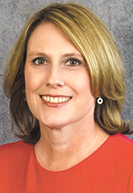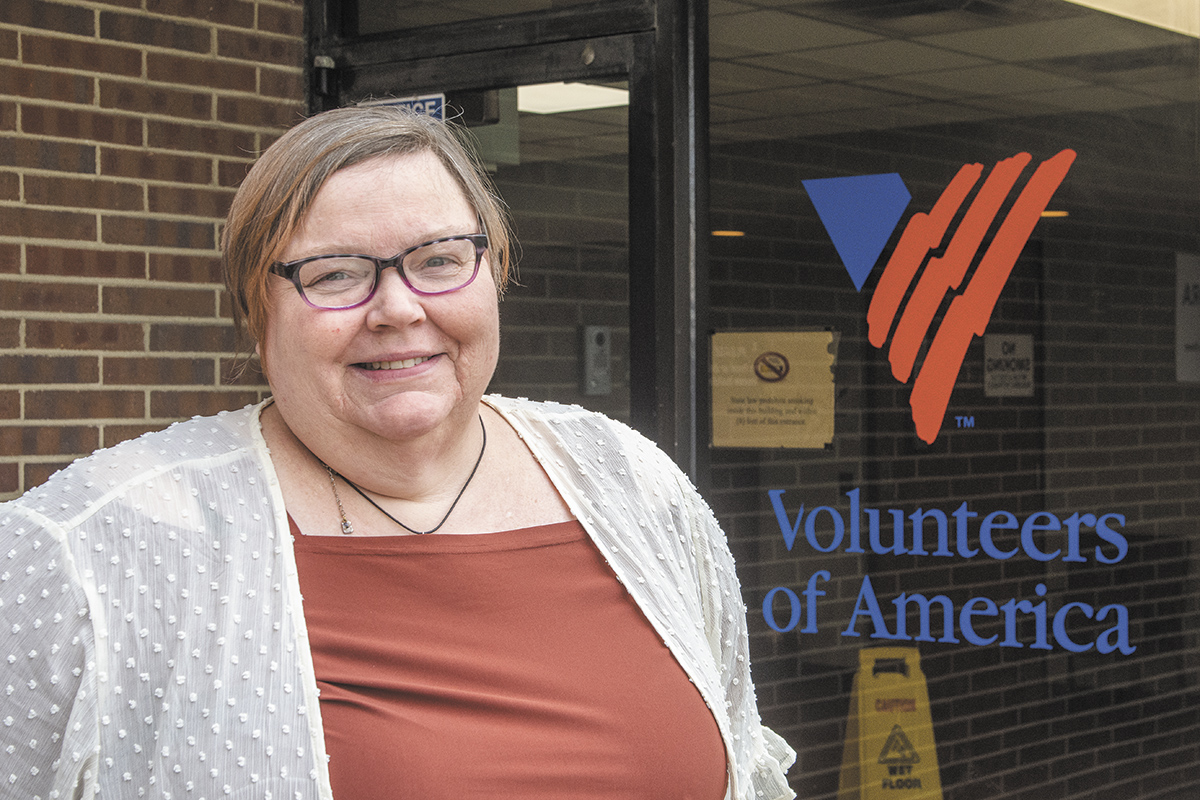Subscriber Benefit
As a subscriber you can listen to articles at work, in the car, or while you work out. Subscribe NowWhen the participants in the Marion County Family Recovery Court gather virtually March 29 to celebrate two women graduating from the program, the speeches, words of encouragement and tears will conclude with final goodbyes.
The Marion Superior Court Executive Committee has announced the family recovery court, which started in 2010, will be closing at the end of the month. Dwindling participation along with concerns about how the program was being operated have been cited as among the reasons for the decision to stop.
But stakeholders and graduates say the closure will have a devastating impact, rippling beyond the participants to their children and extended family members.

“I think it’s a shame we’re so willing to throw people aside because of what one judge experiences over a period of two months,” said Mark Jones, a former Marion Superior judge who presided over the family recovery court until he resigned in January. Marion Superior Presiding Judge Amy Jones has been running the family recovery court since then.
Most of the participants in the court are women who struggle with addiction and mental health issues. Also, they are typically involved in child-in-need-of-services cases because their children have allegedly been abused or neglected.
The family recovery court meets every Tuesday morning, with the participants appearing in court before meeting in a support group. In addition, the court would bring different nonprofits and state agencies together to offer services such as parenting skills courses, and help the women navigate the bureaucracy to get the help they need.
Kristen Keegan, a social worker with the Marion County Public Defender Agency, said the service providers are willing to help participants whenever and wherever. The women in the program have been labeled as “bad moms” because their children have been taken away, she said, but they themselves have suffered trauma in their past.
“These are individuals who need to be understood,” Keegan said. “The family recovery court is not just about substance abuse — it really is a safe space.”
Group therapy session
The Marion County Family Recovery Court has been operating with grant funding from the Substance Abuse and Mental Health Services Administration. Most recently in 2018, the recovery court was awarded a five-year grant of up to $414,704 per year.
According to Marion Superior Court, the grant money was for reimbursement so the dollars could only be accessed to pay for expenses already incurred. Even so, Amy Jones said, the funding was largely unused. The superior court’s executive committee, she continued, decided that to be good stewards of grant dollars, they could not keep asking for chunks of money then letting the dollars sit.
More concerning, Amy Jones said, was the way the court had been run for years. Some participants do not have a pending case, while others do but are not transferred into the recovery court. That is different from all other family recovery courts in the state and impacts the level of accountability the court can provide.
“The participants in family recovery court went there voluntarily,” Amy Jones said. “Some of them, they don’t have a case number. This isn’t done on the record. It’s kind of a group therapy session is what it is, amongst each other, which is very different than how family recovery courts are run across the state.”
Anna Chaney credits the support and help she received in the family recovery court with saving her life.
A crack cocaine addict for 22 years, Chaney took nearly two years to graduate from recovery court. Her life cycled from an abusive relationship, homelessness, prostitution and losing custody of her youngest child to the Indiana Department of Child Services to working as a parent liaison at her daughter’s former school and just using drugs on the weekends.
Chaney came to rely on the social workers and counselors at the recovery court so that when she relapsed, she called them first.
“I still had a circle of support. Even though I had messed up, they weren’t willing to give up on me,” Chaney said. “Your closest family, they just get tired of it all and, that tough love kind of thing, (they say), ‘I’ve got to give up on you until you’re ready.’ And that’s the thing, family recovery court doesn’t give up on you.”

Not enough support
Applying for the 2018 funding, the Marion County Family Recovery Court told SAMHSA the goal was to serve 290 families over the life of the grant. The court wanted its participants to have a “statistically significant higher reunification rate” than families going through the traditional juvenile dependency court process, and that 80% of its graduates would not have a CHINS or new criminal drug-related charge within one year of completing the program.
Reviewing the stats, Amy Jones noted at one point in 2021, the recovery court had 30 participants and a graduation rate of 15%. She was not sure what the typical outcome for family recovery courts has been but said with “regular problem-solving courts,” a graduation rate at 60% is not surprising.
“It was not a light decision at all,” Amy Jones said of ending the family recovery court. “I never want to close down a problem-solving court, but when it’s not operating the way it should, it may be time to kind of dial it back, retool and see if there’s a better way to do it in the future that fits within the model and that fits more within the spirit of the problem-solving court guidelines and rules.”

Mark Jones dismissed the contention that the recovery court has no accountability. He said the accountability comes from the court being ethically bound to advise authorities if participants start engaging in illegal acts. Also, with DCS involved in both the CHINS court and the family recovery court, the agency knows how the participants are doing and can either move forward with or delay reunification.
The former judge acknowledged the difficulty of overcoming drug addiction and how it can lead to mixed results in the recovery court. Some parents reunify with their children and never abuse drugs again, while others fall back into old habits and lose their families all over again. Still, Mark Jones said he believes the recovery court helps serve a critical need.
“I don’t think that we as a system, whether in Marion County or wherever, provide enough support, particularly to parents who have addiction issues,” he said. “I think that was one way we could provide some support and at the same time give accountability because of the nature of family recovery court in conjunction with CHINS cases.”
Having just celebrated two years of sobriety, Chaney is now a certified peer recovery coach and works at the Volunteers of America residential treatment center in downtown Indianapolis. She also has regained custody of her now-13-year-old daughter.
Chaney attends the family recovery court sessions to help participants and champions the program’s success even with the most reluctant mothers.
“I can’t understand how a group of very well-educated individuals can sit above in the executive committee and think that closing family recovery court benefits anybody anywhere,” Chaney said. “… I can tell you, I would not be professionally where I’m at or in my recovery where I’m at or at the state I am as a mother without participating in family recovery court. They literally saved my life.”•
Please enable JavaScript to view this content.
